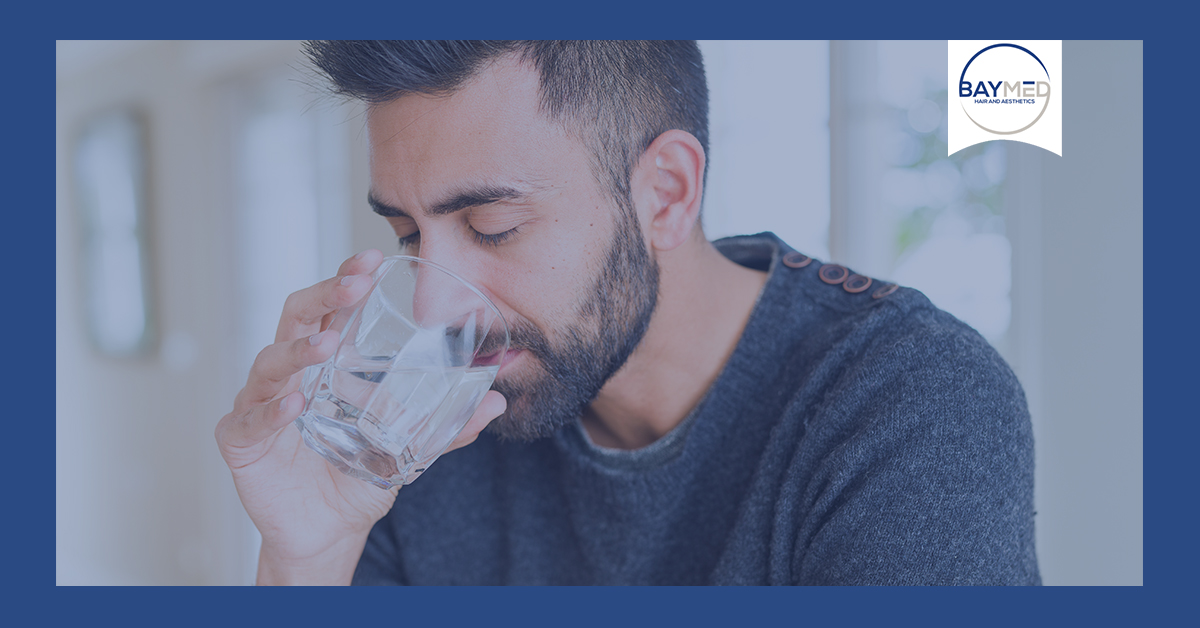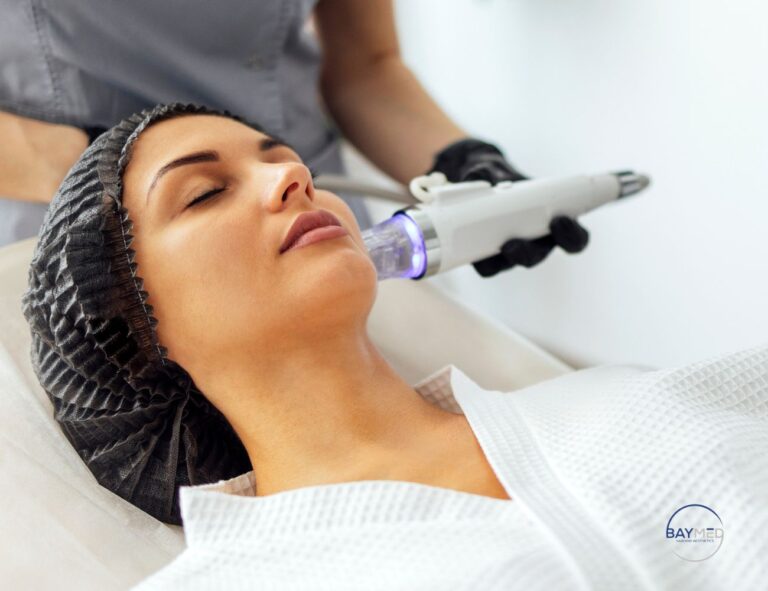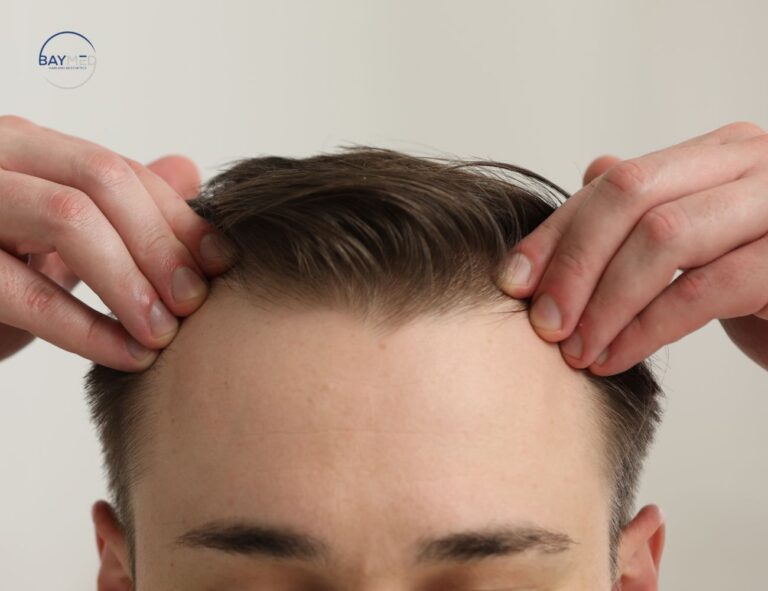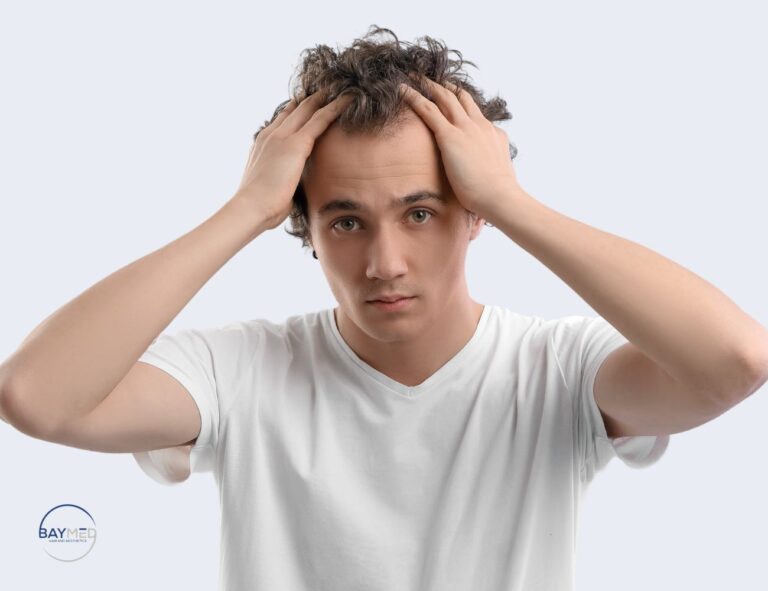Old science told us that drinking 64 ounces of water a day, eight 8-ounce glasses, was the key to being healthy. That number came from the U.S. Food and Nutrition Board of the National Research Council in 1945… and was probably not entirely accurate even then.
According to Paul Jacques, a senior scientist at the U.S. Department of Agriculture Human Nutrition Research Center for Aging to the AARP, “There are many factors that affect water needs and hydration status, such as body size, climate, activity and metabolic rate, etc., so water needs may differ from one individual to another and even for the same person under different circumstances.”
So, what does that have to do with your hair? Quite a lot, actually! Your skin is the home of your hair follicles and if their home isn’t comfy then those hair follicles are not likely to produce at their best level. Think of it like this: when your home is uncomfortable, you don’t rest well and you can’t work as effectively.
Can You Lose Hair From Lack of Water?
The impact of dehydration on your skin can definitely lead to hair loss. Speaking to Prevention magazine, Diana Bitner, MD (an ob/gyn at Spectrum Health Medical Group) said, “dehydrated hair is brittle.” Brittle hair breaks and while that is not the same as full hair loss, it can often create the appearance of hair loss.
Additionally, when your skin is dehydrated, it is more likely to develop psoriasis, itchy spots, and skins infections… all of which can lead to hair loss. Head and Shoulders dandruff shampoo even suggests that there is a link between dehydration and dandruff. Dandruff – and the associated scratching – can impact your scalp health and make it harder for your hair to be healthy.
Scalp conditions caused by dehydration can also cause hair loss via oxidative stress. In other words, your hair loss happens because your hair is unable to get rid of pollution and other contaminants. “[There is a] wealth of observational data on specific dermatological conditions of the scalp providing evidence for the role of the scalp condition in supporting the production of healthy hair,” states the study in the National Library of Medicine. When you drink more water, you help detoxify your body and that makes all of your body systems healthier.
What Does Dehydration Hair Loss Look Like?
The first sign your hair is suffering from dehydration is increased breakage. The texture of your hair may suddenly feel coarser, and you may find it breaking with normal care.
The second sign of dehydration hair loss is flaky, itch dry skin on the scalp and related lack of growth. If you have had hair somewhere previously and it isn’t growing back, you may have a dehydration problem.
Chronic dehydration can lead to thinner hair, less hair growth, and more hair breakage. The good news is that it is reversible.
Can Hair Loss from Dehydration Be Reversed?
Many people may be suffering from chronic dehydration and not even know it. If you have skin issues, muscle cramping, hair loss, or even brain fog – the problem could be dehydration. While it might not be easy to start with, slowly increasing your water intake to deal with the issue may have a number of benefits, including to your hair.
Even better, you don’t have to spend your money on fancy hydrating drinks. Chances are (unless you are very athletic or work excessive hours a day) just plain old water is all you need. And no, drinking multiple cups of coffee or cans of soda a day won’t help your hair – even if water is an ingredient.
BayMed Hair Can Help You Fight Hair Loss
Here at BayMed Hair, we understand that not all hair loss is the same. Two in Five American men experience hair loss. We can help you figure out what type of hair loss you have and how to address it. Whether it is changing your diet, drinking more water, or non-invasive laser therapy, we can help you identify the problem and start getting your hair back. Schedule a consultation today.





